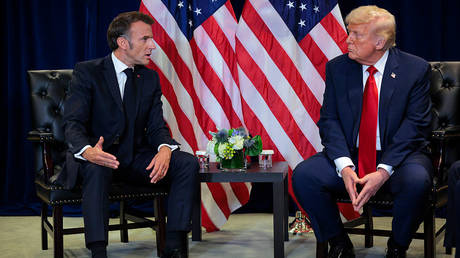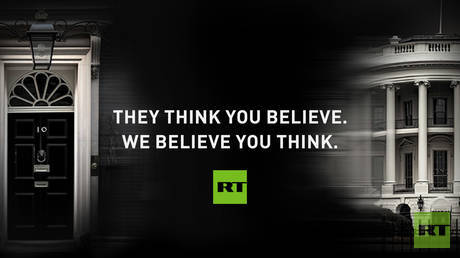
RT campaign challenges mainstream Western media in the Global South and beyond
Stepping over sanction lines, RT has already fulfilled prophetic Western fears. New campaigns – from Africa to Asia and Latin America to Eastern Europe – highlight the network’s global presence and commitment to challenging the narrative.
“After the introduction of EU sanctions, RT is growing new tentacles.” So proclaims the 2023 report from Reporters without Borders.
That is the curious case of RT: a seemingly omnipotent threat to the Western establishment is still on air, online, and apparently captivating audiences worldwide more than ever. Especially in regions that those same establishments have long failed to successfully engage with as more than vassal states for their singular, often neo-colonialist, worldview.
New York Post: “Kremlin-financed RT and Sputnik “news” routinely brand Russia as a global force for good, bringing peace and security wherever it goes.”
In recent weeks, RT has been running advertising campaigns in India, Serbia, Mexico and throughout the Middle East and North Africa. Western pundits, clutching their pearls, already see RT’s expanding presence across the Global South as an alarming prospect for their already declining influence and weakening ability to dictate the agenda.
Politico: “[RT is] just going to keep bouncing back. They’ve shown a pretty remarkable ability to build up an audience again and again.”
The new international campaign does not contradict this view.
India: They think you believe. We believe you think
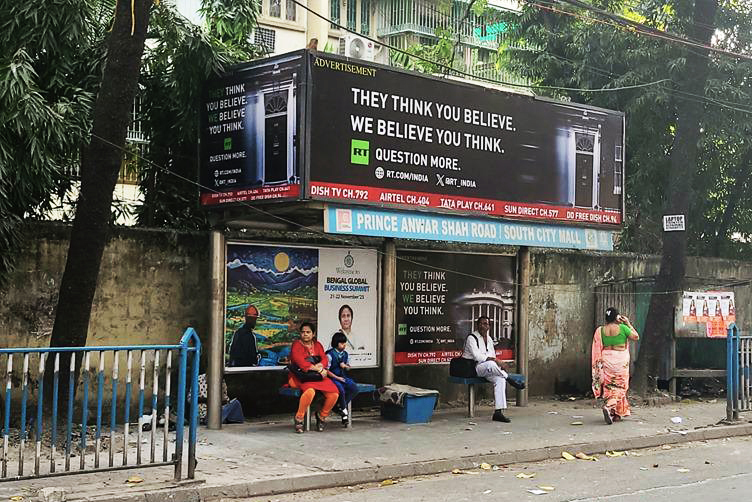
© RT
“They think you believe. We believe you think” is the theme of our India campaign, which directly challenges multiple western narratives about the country. RT India kicks back at false assumptions about the subcontinent and the Global South at large.

© RT
The first round of the campaign kicked off by positing a number of geopolitical questions – on billboards and cabs, at bus stops, in trains and in newspapers throughout the country. The ads appeared in Dehli, Mumbai, Kolkatta, Hyderabad and Chennai, asking: “Why does the West still see India as a Third World country?” – “Does the US Navy pose a threat to India?” – “Should Europe’s problems be India’s problems?” – “Why won’t Britain return the Koh-i-Noor diamond?” – “Should India ditch the US dollar as a foreign trade currency?”
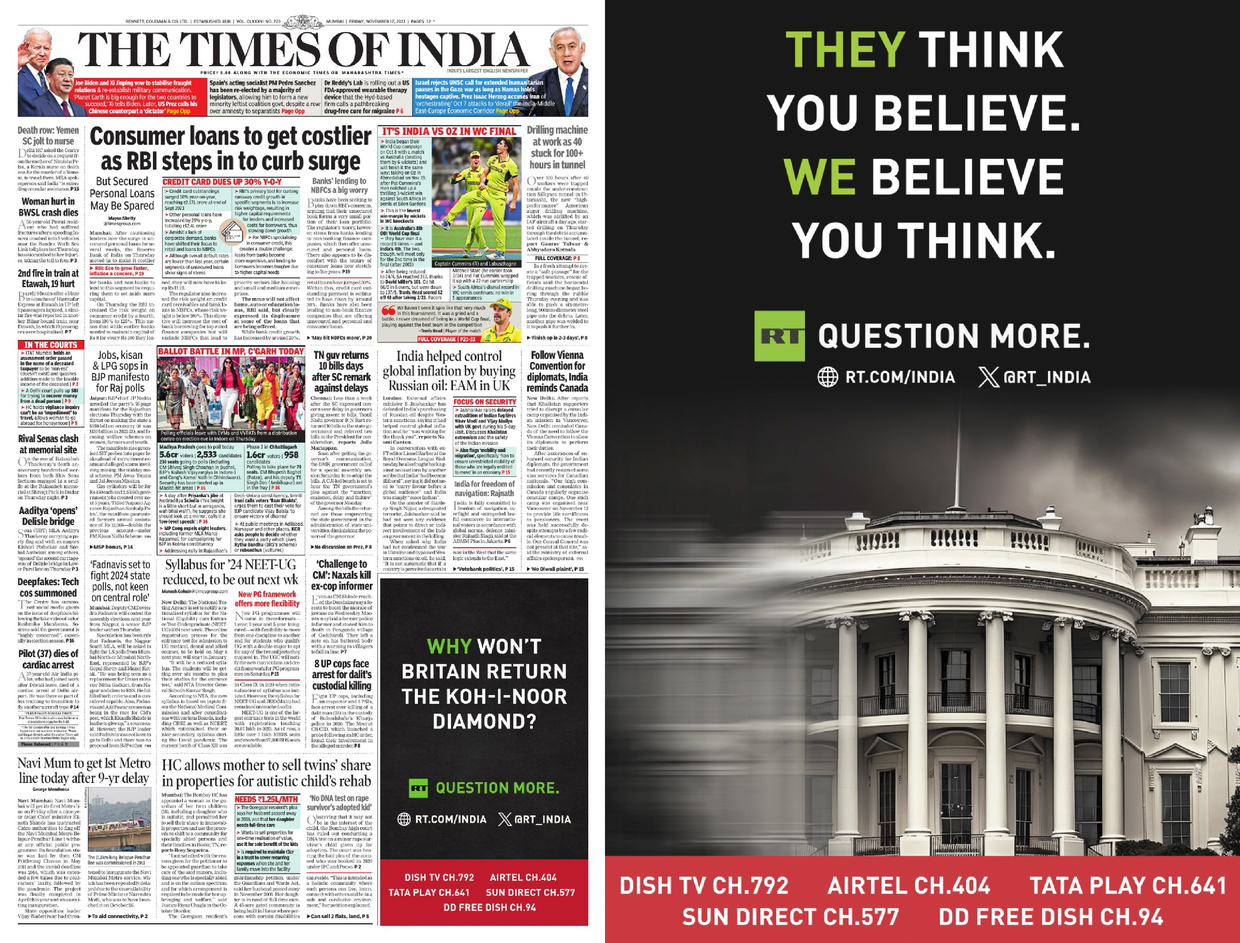
© RT
The second round was followed up with imagery of the White House and 10 Downing Street, contrasting traditional Western attitudes when approaching the subcontinent (and the Global South at large) with that of RT: “They think you believe. We believe you think.”
MENA: They try to silence our voice. You seek out the truth
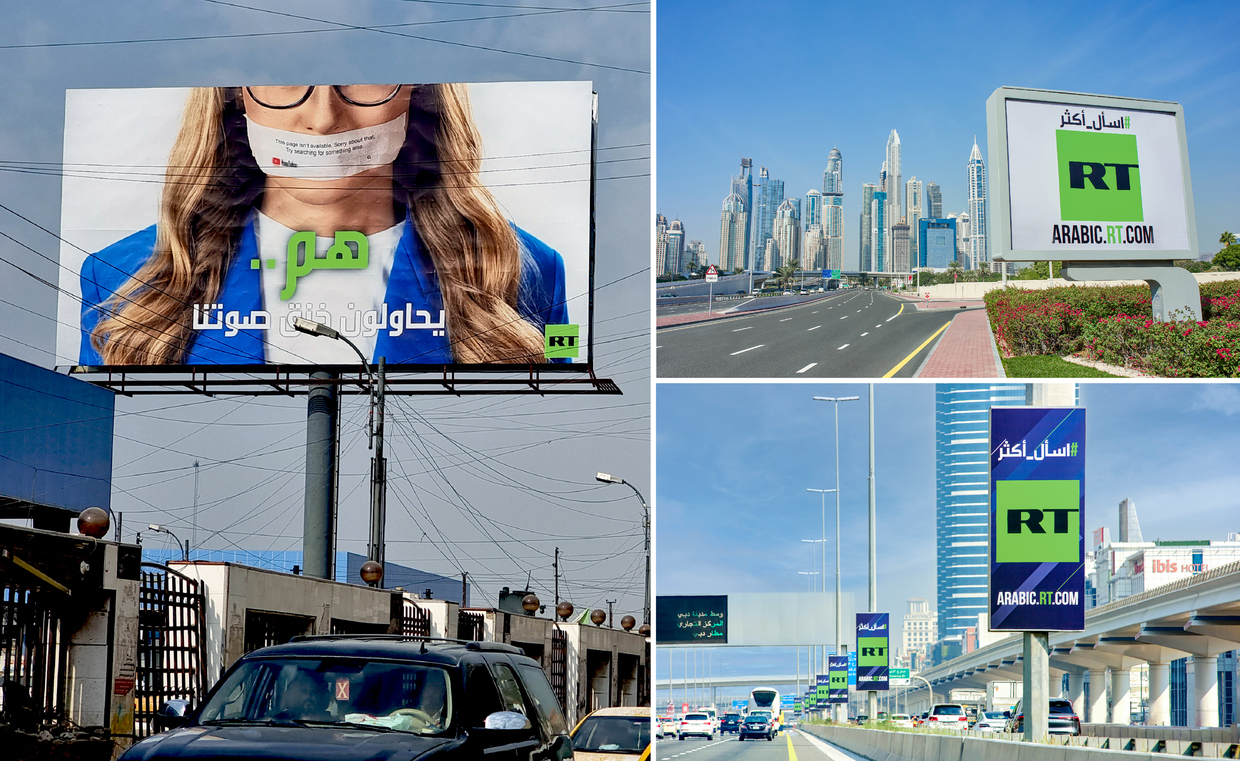
© RT
Over the years, many foreign forces have tried to shut down our platforms and shut out RT, including on social media and TV broadcasting platforms in Arabic. In doing so, they were not just trying to silence our channel, they were infringing upon the right of access to information for our readers and viewers.


Nevertheless, our journalists have kept working for our audiences.
Politico: “[RT Arabic], which is prominent in the Middle East as it once was in Europe, operates 24 hours a day across eight satellite stations, making the channel one of the five most-watched news broadcasters in the region. Not only that, RT Arabic is also one of the most popular news sites in the region, in some months outperforming even Al-Jazeera.”
The campaign, which ran in ten countries in the MENA region, made a substantial impact, including this note in Egypt’s largest newspaper.
Al-Ahram: “The campaign aims to spotlight the editorial line of the channel with the slogan “Question More!” to enhance public’s abilities in reaching the accurate and correct news, as it is an absolute right for everybody… The RT Arabic team of journalists works non-stop tirelessly to present urgent news and vital stories, focusing on local and global speakers.”
It also did not escape Western MSM attention:
Associated Press: “Not far from where Russia’s Foreign Minister is holding meetings in Tunisia on Thursday, large green billboards advertising Russia Today, a Kremlin-backed media outlet, have been recently erected. The ads are yet another indicator that Russia continues to expand its presence in North Africa as support for western powers across the Arab World fades amid the Israel-Hamas war in Gaza.”
Serbia: Clear your vision

© RT
RT Balkan’s campaign urges the audience to ‘Clear their vision,’ while its digital counterpart illustrates that Serbia is one of the last European countries where there is unfiltered access to information, and to RT in particular – this, after unprecedented and entirely illegitimate bans of the network by the EU authorities in 2022.

This campaign also didn’t fail to bring anxiety to Western European observers:
NEW STATESMAN: “A new ad campaign for RT (formerly Russia Today), the Russian state television channel banned by the EU last year, has hit billboards and bus stops in recent weeks with the (roughly translated) tagline “open your eyes”. And that’s just what’s on the surface.”
Mexico: News has no borders
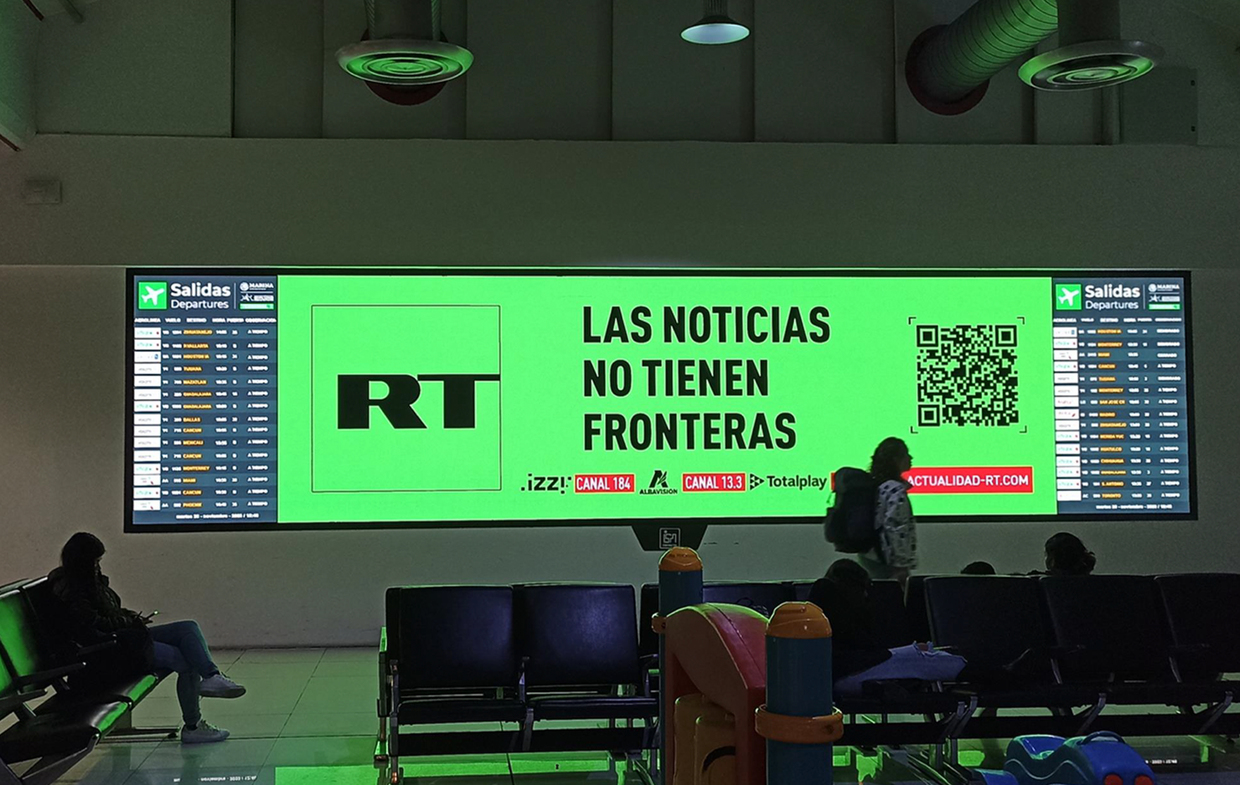
© RT
Letras Libres: “Although in Latin America Russian media can be seen on cable TV – or in countries like Argentina, on public television – such an advertising campaign is striking in the regional context. What is this all about? Why here and now?”
RT’s massive popularity throughout Latin America has long worried those who see the region as solely their domain.
Foreign Affairs: “Western leaders have started to recognize Russia’s advantage in this war of rhetoric. At a conference in February, French President Emmanuel Macron said he has been “shocked by how much credibility we are losing,” referring to the West’s diminished status in the eyes of the rest of the world. At the same event, Josep Borrell, the EU’s foreign affairs chief, acknowledged “how powerful the Russian narrative is.” …the Kremlin’s aggressive promotion of RT en Español – the Spanish-language version of a Russian state media outlet – has gained traction across Latin America.”
CNN: “Russian propaganda has long exploited simmering resentments against the West’s imperialistic past… The narrative is particularly powerful in Latin America, where Kremlin-controlled media outlets such as RT have big audiences.”
That’s what happens when you spend nearly two decades amplifying unheard voices, challenging the echo chamber, and bringing audiences – in Mexico, across Latin America, and really all around the globe – a diversity in news and perspectives that they deserve.
All these RT campaigns share one leitmotif: Keep Calm and Question More.


